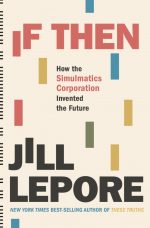The story of data analysis and prediction in Jill Lepore’s extraordinary new book IF THEN: How the Simulmatics Corporation Invented the Future commanded my attention. It will serve as a concrete reminder that when we analyze data, we cannot forget that we engage not only with the intended subject (‘human behavior’, in the case of Simulmatics), but also the behaviors of the humans organizing the data, and even the behavior and characteristics of data itself.
Above all, what stood out for me were 1) the positively insane variation of real-world issues even in the preliminary stage of ‘data collection’ and 2) the influence of the characters’ blindness, which at least equalled their vision. (This shows itself most consequentially in the company’s Vietnam work.) Defensive techniques against randomness and bias in data are highly developed by now, of course, and ‘Big data’ at our fingertips provides some stability… but, Jesus, what a mess it all is in real life.
The mechanisms by which technology can undermine and warp its own future show up here with surprising clarity. It is easy to imagine how the studies and conclusions of our own time will similarly erode and rust, sooner or later giving in to the flow of time, events, and memory.
The on-the-fly nature of memory we require for music reminds us that we are constantly adjusting, relying on thin similarities, ducking and weaving, and somehow coming out with larger pictures and structures. These larger pictures cannot accurately arise from brittle, contrived models. Ultimately, even the process of ‘labelling’ data proves an impediment to flexible knowledge, and to action. Music knows this, better than most arts.
Highly recommended, highly readable, worth sharing.
